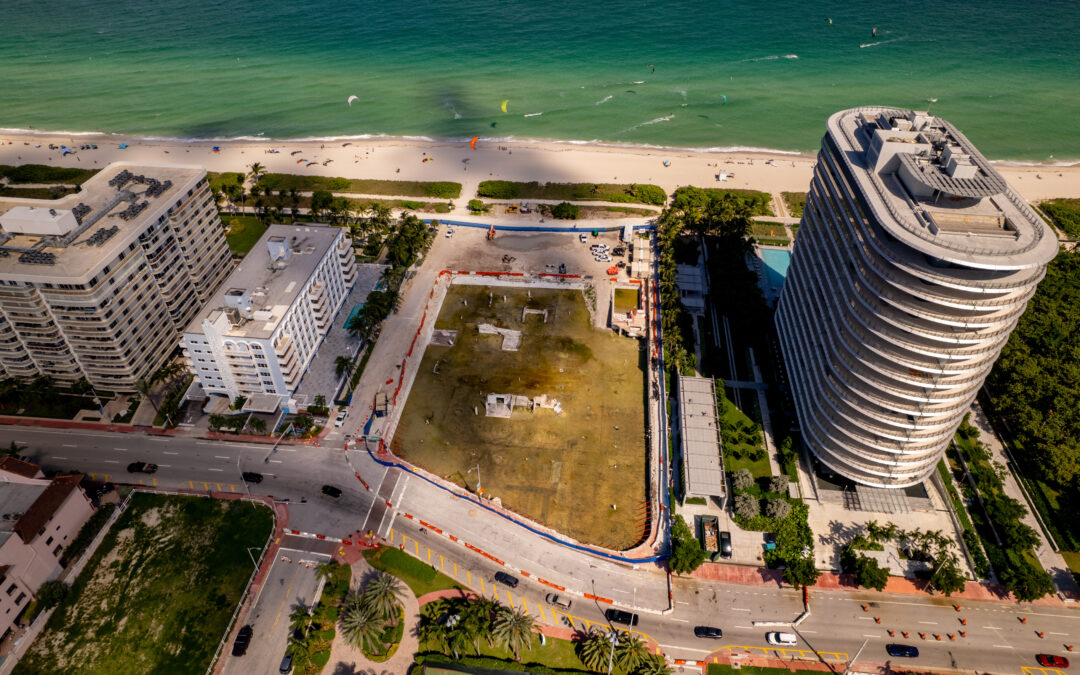The partial collapse of Champlain Towers South condominium in Surfside, Fla., on June 24, 2021, killed 98 people and is considered one of the worst building disasters in U.S. history. The tragedy spurred CAI into action, galvanizing members and staff around condo safety.
Over the past two years, CAI has educated community association residents, board members, managers, business partners, legislators, and regulators about structurally sound and fiscally responsible communities.
Task forces have developed and published the Condominium Safety Public Policy Report, Best Practices: Community Association Maintenance, National Reserve Study Standards, numerous articles, several education sessions and webinars, and more. CAI advocates have helped us to legislative success on the local, state, and federal levels.
When CAI published its public policy report in October 2021, only nine states mandated reserve studies in condominiums, 11 states had specific mandates addressing reserve funding in condominiums, and no states mandated building inspections in high-rise residential buildings. As of June 2023, 11 states now mandate reserve studies in condominiums, 12 states mandate reserve funding in condominiums, and one state mandates certain building inspections in high-rise residential buildings. Legislation has been introduced in several more states. More work continues to be done at the federal legislative and regulatory level.
Since CAI’s founding 50 years ago, the Surfside tragedy stands out as an event that has validated the need for strong leadership within community associations. Appreciating and implementing the important changes the condo collapse brought about can help community associations going forward.
A little over a year before Champlain Towers South crumbled, an independent budget review warned the Towers’ residents that its financial reserves were critically underfunded given urgently needed structural repairs.
The lesson is obvious, says Kelly Richardson, a CAI past president, a fellow in CAI’s College of Community Association Lawyers (CCAL), and an attorney with Richardson | Ober in Pasadena, Calif.: Communities should build reserve funds steadily, not suddenly. And if asking for more money from owners is the remedy, boards should explain early and often, in a narrative manner, the need for an assessment. Describing what might happen if an assessment isn’t approved may be a board’s best recourse.
Stephen Marcus, an attorney in Braintree, Mass., says he was “shocked” by the collapse.
In his role as co-chair of CAI’s building inspection task force that helped developed the Condominium Safety Public Policy Report following the Surfside tragedy, Marcus discovered that Champlain Towers owners had rebelled when the board floated a multi-thousand-dollar assessment to pay for an engineer-recommended $15 million in structural work.
“Maybe I was naïve,” says Marcus, a CCAL fellow. “I knew that some condominium associations were less diligent in providing for reserves (for maintenance), but I thought the result would have been very large assessments.”
CAI now recommends statutorily mandating reserve studies and funding for all community associations. The recommendation also provides details to help communities prepare for and a timeframe to practically transition to these new requirements to avoid financial strain on homeowners and the association.
In addition, CAI public policy now recommends additional inspection requirements by developers during the development process and prior to transition to homeowners, as well as periodic inspections post-transition.
Conversations around condo safety have continued to grow, and more data has been collected on aging infrastructure. New critical details relevant to the policy not initially addressed are now being reviewed by a CAI building maintenance and structural integrity policy task force. This task force will likely add policy recommendations related to façade maintenance, inspections, and safety to the policy in the fall of 2023.
CAI has information and resources covering aging infrastructure, reserve studies and funding, building inspections, maintenance, community association living responsibilities, CAI policy positions, and more.
>>Visit www.condosafety.com, and help CAI advocate for change by sharing our materials and by joining our public policy efforts.



H.R. 7532, the Securing Access to Finance Exterior Repairs (SAFER) in Condos Act of 2022, would expand the section 203(k) rehabilitation and title I property improvement loan programs
is this bill getting any traction or just lying in a dust bin. times running out in our condo bldg.